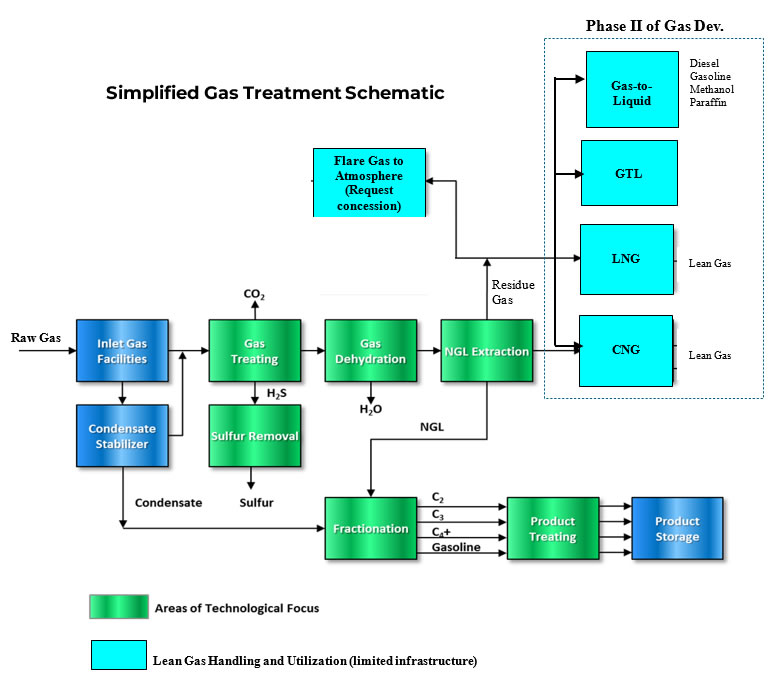Gas-to-Liquid (GTL) technology involves converting natural gas into liquid fuels and other products. This process typically uses two main stages: gas reforming and synthesis. Natural gas is first converted into syn-gas (a mixture of hydrogen and carbon monoxide), which is then processed through a Fischer-Tropsch synthesis to produce liquid hydrocarbons, including diesel, naphtha, and other chemicals.
GTL products are usually very pure and free from sulfur, aromatics, and other impurities found in conventional crude oil-derived fuels which results in liquid fuels that have a cleaner combustion profile, producing fewer pollutants like nitrogen oxides (NOx) and particulate matter compared to traditional fuels.
GTL products are very versatile and can be used in various industries like Aviation: to produce Jet fuel, trucks and buses as a cleaner alternative to diesel, also in power plants as an alternative to conventional fuels to reduce emission.

